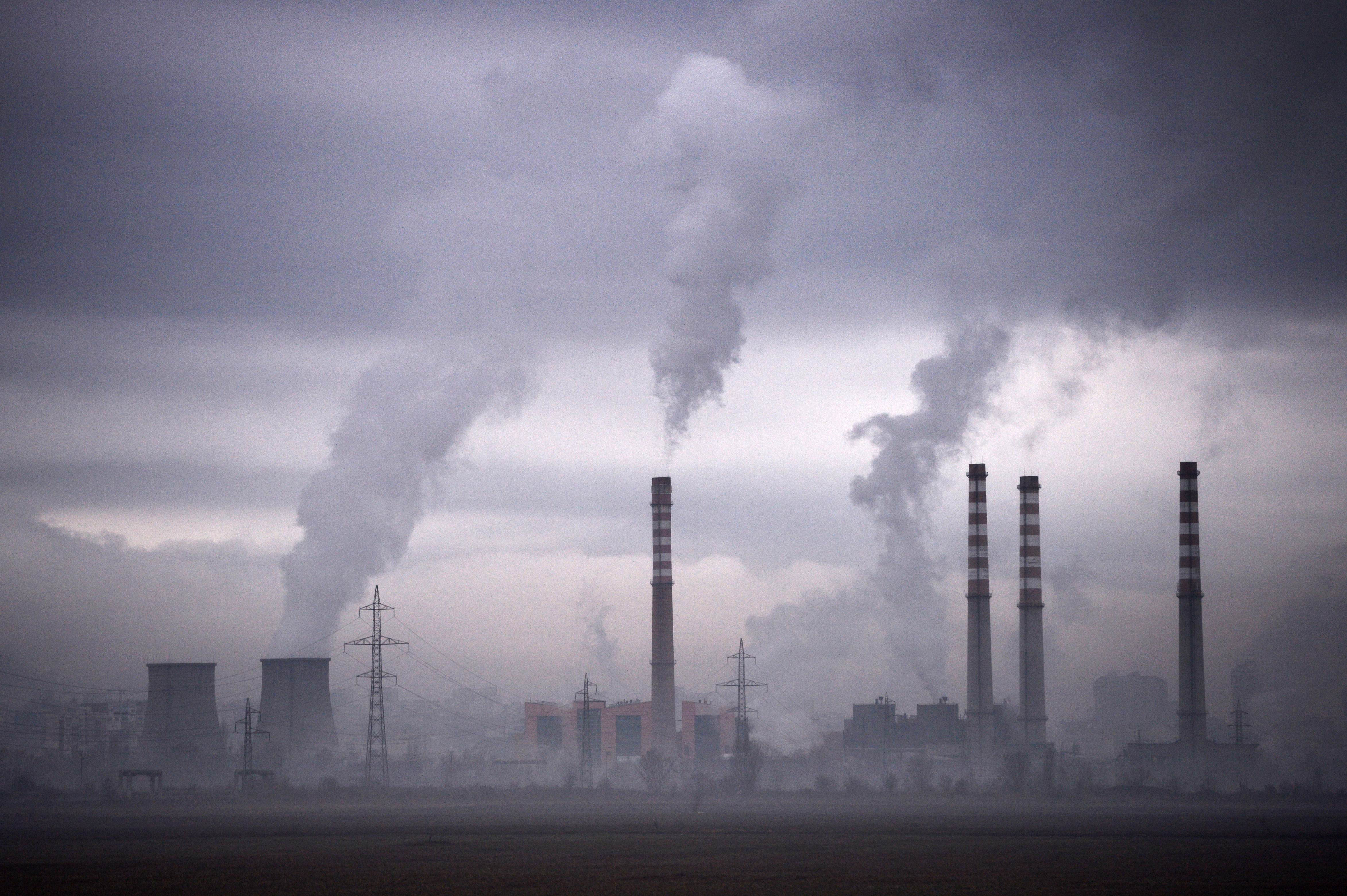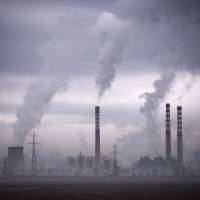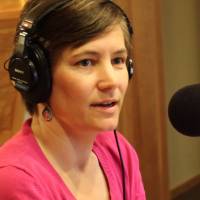Dr. Heather Goldstone is a rare breed. She's a journalist who insists on getting the science right, and she loves sharing it with the public.
Goldstone is science editor at WGBH/WCAI, a public radio station in Boston. She also holds a Ph.D. in ocean science from Massachusetts Institute of Technology and the Woods Hole Oceanographic Institution.
I met Goldstone last month in Boston at a WGBH public forum, where she and other panelists were discussing the impacts and challenges of climate change. Goldstone combined the best of science and journalism, explaining the issues concisely with insight and humor. Since she is a scientist, I was particularly interested in her thoughts on why skeptics remain skeptical, and how journalists and scientists can do a better job of getting people to understand the truth.
Below are some of the highlights of our conversations, in Boston and by email.
Why did you make the move from research to media?
I decided to become a marine biologist when I was 12 years old, and pursued that dream unwaveringly for almost 15 years. But near the end of my time in graduate school, I realized that what I loved more than actually doing science was thinking about the big ideas, telling the stories that come from research and speaking to the public.
It took a few years of doing journalism on the side while pursuing postdoctoral research to finally work up the resolve to give up research completely. I was afraid I'd miss it, but I've never looked back. I think of what I do as the final step in the scientific process — making sure the public understands and benefits from what scientists do every day.
Do you have any lingering doubts that human activity is the primary cause of climate change?
No. The United Nations' most recent review of climate science concludes that there is unequivocal evidence that climate change is happening and that, based on all available science, it is extremely likely that human activities are the dominant cause. There is overwhelming consensus on these points. That said, our scientific understanding of the world is constantly evolving. It's possible — although extremely unlikely — that we could be wrong about this, and I remain open to considering all evidence. That's part of a scientific worldview.
At the WGBH climate talk you mentioned that 89 percent of scientists as a whole and 99 percent of climatologists accept that human-driven climate change is occurring; what are the main points still in contention?
Those statistics refer to the strong consensus about the fundamental points that climate change is happening, is largely caused by humans, and poses a real and present danger. Even among the 99 percent of climatologists who agree with that consensus, there is uncertainty and debate about specifics of how rapid and severe the impacts of climate change will be, and how they will play out in different locations. Two areas of active debate are the nature of future winter weather in North America and Europe, and the interaction between clouds and climate change.
What are your primary concerns regarding the public debate over climate change?
I find the widespread rejection of scientific knowledge disturbing. Everyone is entitled to their own opinions about whether and how we should respond to climate change, but we should be able to agree on a factual basis for that conversation. Scientific consensus doesn't guarantee the right answer, but it is the best we have to go on.
As you noted, few scientists harbor doubts about anthropocentric climate change; why do so many people continue to reject the overwhelming scientific consensus that humans are changing the climate?
There have been a number of explanations for public misperceptions about climate science. Journalists have blamed scientists for being inaccessible or incomprehensible, while scientists have accused journalists of perpetuating the perception of debate. There have also been — and continue to be — deliberate attempts to mislead people about climate change. But research increasingly indicates that there may be fundamental aspects of human psychology that make it difficult for many people to comprehend and accept the reality of climate change.
In Boston you mentioned two of these aspects, the concepts of motivated reasoning and cultural cognition. What role you think they play?
Cultural cognition is essentially the idea that we subconsciously filter factual information through our deeply held beliefs, rejecting those items that conflict with or threaten our worldview. Motivated reasoning is a related phenomenon in which we actively — but, again, subconsciously — seek out information that substantiates or conforms to our worldview. We also tend to dismiss dire information if it is not presented with some message of hope or action. Climate change is an overwhelming challenge that could threaten beliefs in equality, justice, independence or fundamental human goodness, to name a few. The end result is it can be very hard for some people to accept.
You mentioned that some scientists accuse journalists of perpetuating the climate debate. Do you think media insistence on "balanced" reporting is responsible for some of the climate change skepticism?
I'm not aware of research that quantifies the impact, but I'm sure media coverage has affected the public perception of climate science. For a number of years, even well after there was a strong scientific consensus about human-caused climate change, much of the media continued to give equal weight to dissenters in an effort to provide a balanced account of a controversial subject. However, the end result was a distorted depiction of the state of the science.
That has changed a lot in the past decade. One study found that by 2006, 97 percent of articles in four leading newspapers portrayed climate change as largely caused by humans, while only 3 percent covered it as a debate. The question is how long the hangover from earlier coverage will last.
You mentioned when we first met that only 37 percent of the public trusts journalists. Why do you think this is so?
The media landscape has expanded and become more fragmented. It's easy to find someone who will tell you exactly what you want to hear. That makes it harder for consumers to know whom they can trust, and spreads a pall over all journalists, even the best ones. Of course, this is just my own theory. Nothing scientific.
How can journalists help the public understand and accept the reality of climate change?
Many people, even those who accept the scientific consensus on climate change, view it as a problem that will affect people somewhere else, sometime in the future. But scientists are increasingly confident that we are already seeing the impact of climate change. That means journalists have a real opportunity to tell local, personal stories about climate change that are both scientifically accurate and relevant to people's daily lives.
Stephen Hesse is a professor in the Law Faculty of Chuo University and associate director of Chuo International Center. He can be reached at [email protected].



















With your current subscription plan you can comment on stories. However, before writing your first comment, please create a display name in the Profile section of your subscriber account page.